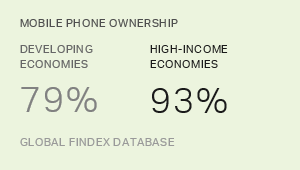BRUSSELS -- About 4 in 10 EU residents (39%) interviewed in September reported cutting back on their vacation budget in 2009. Forty-four percent of residents said they did not reduce their budget, while 14% responded that they never go on vacation.
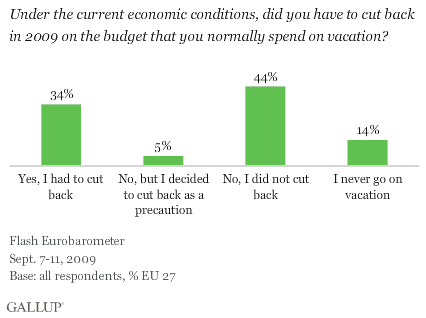
EU residents reduced or planned to reduce their vacation budgets in a variety of ways. They most often did so by taking shorter vacations (40%), finding cheaper accommodation (39%), and by vacationing closer to home (28%).
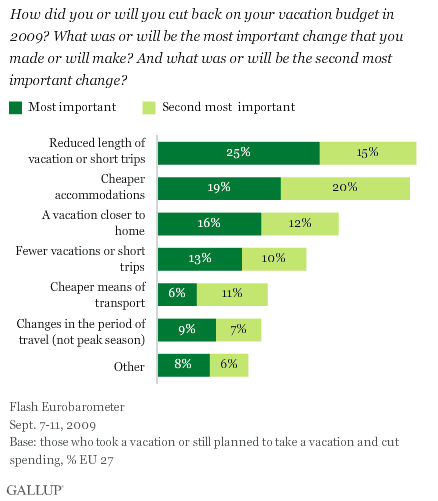
In addition, about one in eight (12%) EU residents who had taken a vacation or still planned to take one at the time of the survey booked their vacation using a last-minute offer -- and a majority of them (54%) did so to get a cheaper price. More than one-third (38%) of those who booked a last-minute deal indicated that they made a late decision about the vacation itself (whether to go) and more than one in five (21%) cited a "last-minute" decision on the destination.
Citizens of the Netherlands, Luxembourg, Belgium, and two Nordic countries were the least likely to say they cut back on their vacation budget in 2009 (between 19% and 27%). Irish citizens (64%) and those from the Baltic states (Lithuania 61%, Latvia 56%, Estonia 52%) were among the most likely to have made such a reduction.
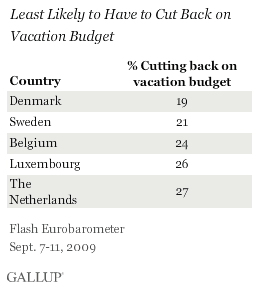
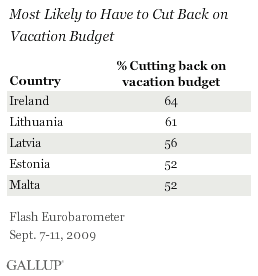
Looking ahead to next year, more EU residents who said they could afford a vacation in 2010 are planning a long one (that is, more than 13 consecutive nights spent away from home) than at the equivalent time last year (27% now vs. 20% who had plans for a vacation in 2009). This could either signal the end of troubled times for the tourism industry or be a sign that people are still willing to take vacations but finding ways of making them cost less.
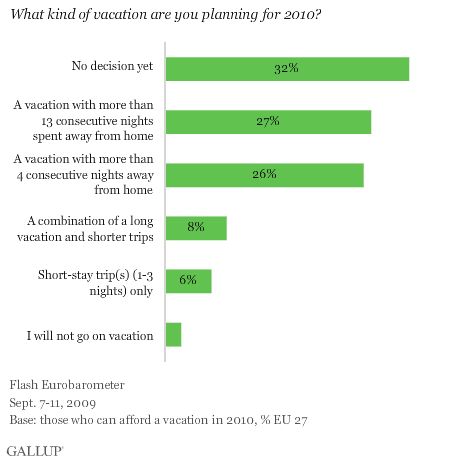
Eurobarometer Reports
���۴�ýconducts Flash Eurobarometer surveys for the European Commission. These surveys enable European policy-makers to hear the voices of EU residents in the 27 member states. ���۴�ýhas worked with the Commission on more than 90 Flash Eurobarometer surveys (with close to 1.5 million interviews) on subjects from the euro to consumer protection and from higher education to energy policies.
Read the online.
Survey Methods
Results are based on telephone interviews, with some face-to-face (F2F) interviews due to the low fixed-line telephone coverage in certain east European countries, with 24,000 adults, aged 15 and older, conducted from Sept. 7-11, 2009, in 27 EU member states. For results, based on the sample in each member state, one can say with 95% confidence that the maximum margin of sampling error is ±3 percentage points. In addition to sampling error, question wording and practical difficulties in conducting surveys can introduce error or bias into the findings of public opinion polls.
